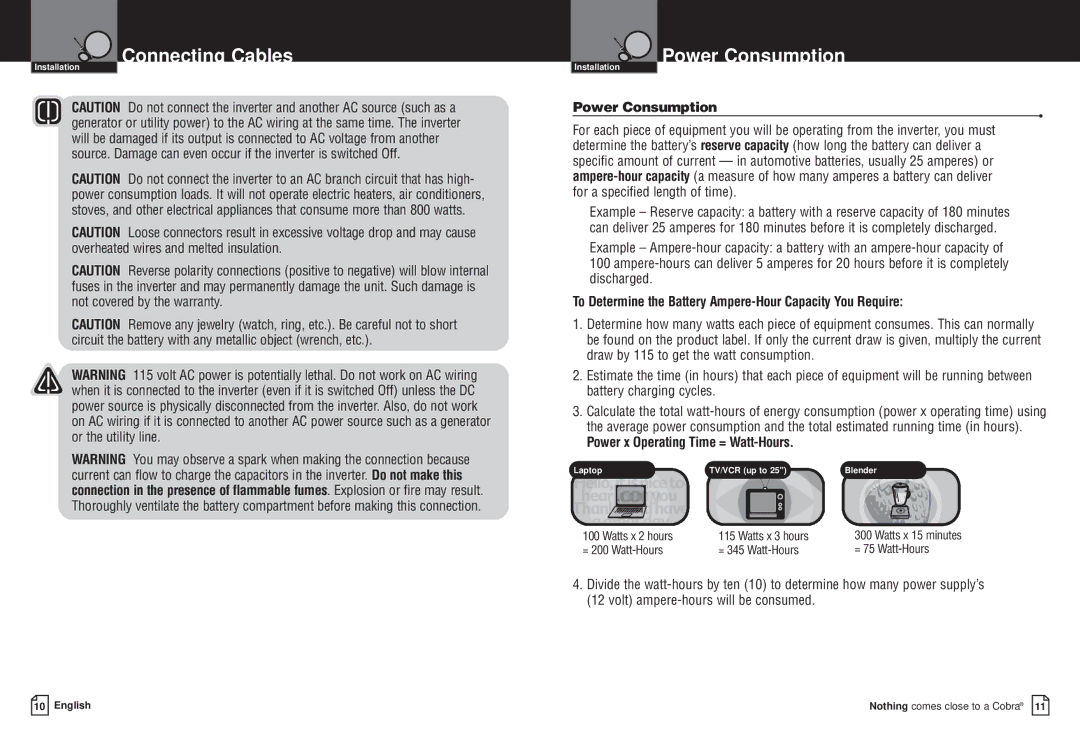
Connecting Cables
Installation
CAUTION Do not connect the inverter and another AC source (such as a generator or utility power) to the AC wiring at the same time. The inverter will be damaged if its output is connected to AC voltage from another source. Damage can even occur if the inverter is switched Off.
CAUTION Do not connect the inverter to an AC branch circuit that has high- power consumption loads. It will not operate electric heaters, air conditioners, stoves, and other electrical appliances that consume more than 800 watts.
CAUTION Loose connectors result in excessive voltage drop and may cause overheated wires and melted insulation.
CAUTION Reverse polarity connections (positive to negative) will blow internal fuses in the inverter and may permanently damage the unit. Such damage is not covered by the warranty.
CAUTION Remove any jewelry (watch, ring, etc.). Be careful not to short circuit the battery with any metallic object (wrench, etc.).
WARNING 115 volt AC power is potentially lethal. Do not work on AC wiring when it is connected to the inverter (even if it is switched Off) unless the DC power source is physically disconnected from the inverter. Also, do not work on AC wiring if it is connected to another AC power source such as a generator or the utility line.
WARNING You may observe a spark when making the connection because current can flow to charge the capacitors in the inverter. Do not make this connection in the presence of flammable fumes. Explosion or fire may result. Thoroughly ventilate the battery compartment before making this connection.
10 English
Power Consumption
Installation
Power Consumption
•
For each piece of equipment you will be operating from the inverter, you must determine the battery’s reserve capacity (how long the battery can deliver a specific amount of current — in automotive batteries, usually 25 amperes) or
Example – Reserve capacity: a battery with a reserve capacity of 180 minutes can deliver 25 amperes for 180 minutes before it is completely discharged.
Example –
To Determine the Battery Ampere-Hour Capacity You Require:
1.Determine how many watts each piece of equipment consumes. This can normally be found on the product label. If only the current draw is given, multiply the current draw by 115 to get the watt consumption.
2.Estimate the time (in hours) that each piece of equipment will be running between battery charging cycles.
3.Calculate the total
Power x Operating Time = Watt-Hours.
LaptopTV/VCR (up to 25")Blender
100 Watts x 2 hours | 115 Watts x 3 hours | 300 Watts x 15 minutes |
= 200 | = 345 | = 75 |
4.Divide the
Nothing comes close to a Cobra® 11
